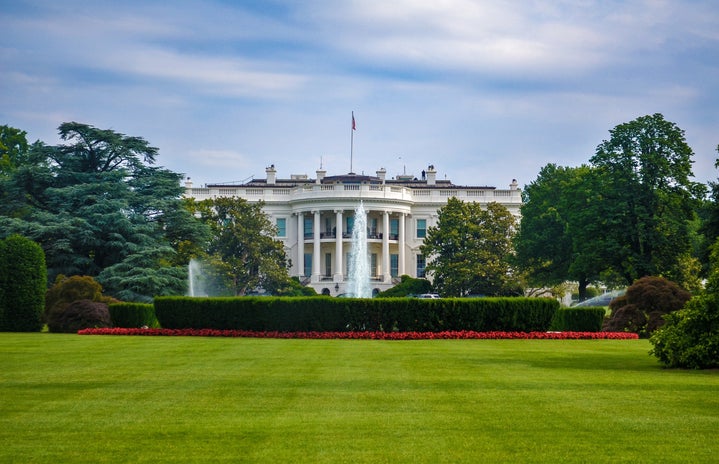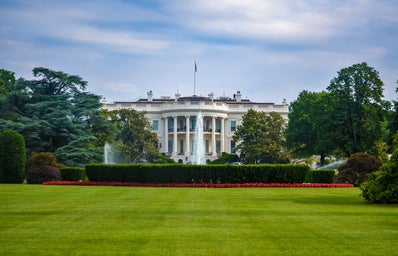Courtesy: KWQC
In 2017, you may have seen a more than average number of news articles concerning the National Park System (NPS) in the United States popping up on your Twitter feed. From work suspensions of more than 200 advisory boards, committees and subcommittees in the spring of last year, to the proposed dramatic visitor price increases to many of our nation’s most popular parks, a lot has happened in regards to our favorite hiking trails. And 2018 has not been all that different.
As of Jan. 19, 2018, 10 of the 12 members of the National Parks Service Advisory Board have resigned. Of the 10 members who have resigned, nine made their announcement on the morning of Jan. 15 through a letter addressed to Interior Secretary Ryan Zinke, written by board chairman Tony Knowles, former Alaskan governor. USA Today names nine of the resigning members, as mentioned in the letter, as Tony Knowles, Gretchen Long, Paul Bardacke, Carolyn Finney, Judy Burke, Stephen Pitti, Milton Chen, Belinda Faustinos and Margaret Wheatley.
According to the letter, the resignations came out of frustration toward Secretary Zinke after Zinke had refused to meet with the board or convene a single meeting in the last year. Knowles stated that the resigning board members, “have stood by waiting for the chance to meet and continue the partnership…as prescribed by law.”
“We understand the complexity of transition, but out requests to engage have been ignored and the matters on which we wanted to brief the new Department team are clearly not part of its agenda,” Knowles goes on to write. Knowles acknowledges that the Interior’s recent decisions to reverse climate change directives, place bans on plastic water bottles in the park system and other policies without the board’s consultation was another driving factor.
Courtesy: Alchetron
On Jan. 17, Carolyn Hessler Radelet, chief executive of the nonprofit Project Concern International, submitted a separate resignation letter. Outside of Radelet, whose end of term wasn’t set to expire until 2021, the majority of those who submitted resignations last week had terms that were meant to end this coming May. In her letter, Radelet explained her reasoning for resignation as being a, “concern that the mission of stewardship, protection and advancement of our National Parks has been set aside.”
According to NPR, in a statement on Jan. 17, Heather Swift, the spokeswoman for the Department of the Interior, said that the department welcomes the resignations. Swift went on to say the claims of the board are false and that they have worked together as recently as earlier this month. She also said that the terms of two of the individuals had already expired, one in July and one in November of 2017. It may be assumed, based on the list of advisory board members posted on the National Park System website, that the two resigning board members that Swift is referencing are Paul Bardacke and Stephen Pitti. Both have been listed as board members who have resigned according to USA Today, but neither appear on the NPS website of board members.
The previous Secretary of Interior, Sally Jewell, who served during President Obama’s second term, voiced her thoughts on the matter on NPR’s Here and Now. Jewell says that “they were being ignored, and I have to believe that’s consistent with what this administration’s done with other agencies, as well.”
Jewell’s concerns seem well placed. When the Washington Post emailed inquiring about the status of the 200 boards that were forced to come under review in 2017, the only response they were given from Spokeswoman Swift was that the “boards have restarted,” with no further details.
However, despite the board restarting, two of the 38 Bureau of Land Management’s Resource Advisory Councils (RACs), Rocky Mountain and Southwest Colorado, have been left frozen. This comes on account of the department having yet to update their charters, which is legally required under the Federal Advisory Committee Act. Also, under Secretary Zinke, two of the advisory bodies have been disbanded: the Wildlife and Hunting Heritage Conservation Council and Advisory Council and the Climate Change and Natural Resource Science Advisory Council. The former of which Secretary Zinke has replaced with the Hunting and Shooting Sports Conservation Council, which is soliciting nominations as of Jan. 19.
Courtesy: NPR
Now, you may be wondering to yourself: we no longer have a functioning advisory board, so what? What difference does this make exactly?
Due to the fact that there is no advisory board for the National Parks Service, no new historic or natural landmarks will be able to be appointed, as this requires board approval. It may be noted that the actions of removing land from national historic and natural landmarks, however, do not need board approval. Additionally, this means there are no advisors who are largely acknowledged experts in their fields to help with the decision-making happening in the Department of the Interior. You may be thinking that this won’t really make a difference since obviously Zinke and other members of the Interior haven’t been taking advantage of these advisors in the past year. Nevertheless, it’s important to acknowledge that the lack of a board opens up the possibility for politicians in the department to attempt to blame the lack of advisory for negative backlash or effects that may come from decisions they have enacted.
The remaining members that make up the board are Linda Blimes, a public finance professor at Harvard University, and Rita Colwell, a professor of marine science at the University of Maryland. Both of their terms expire in May.



